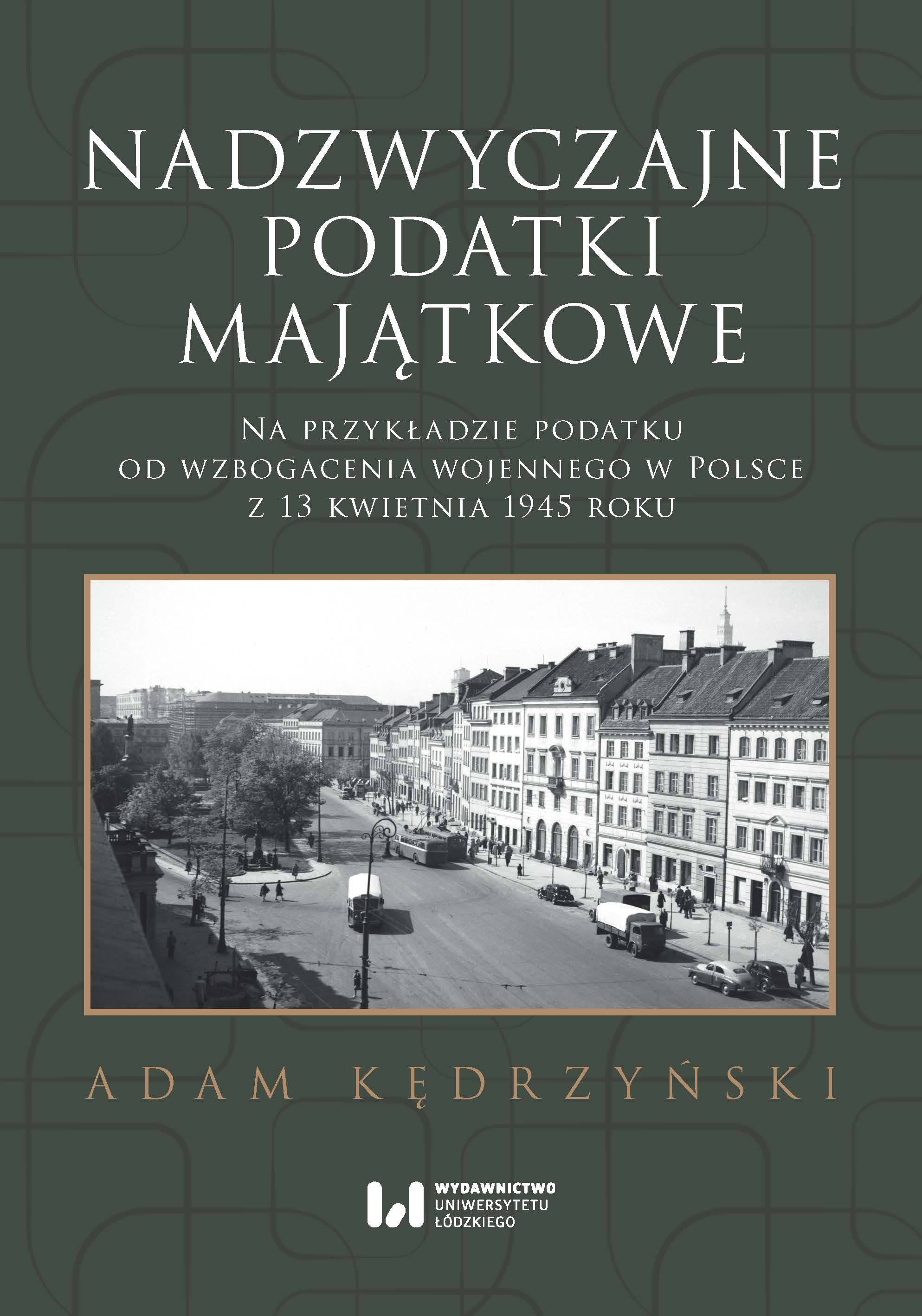Nadzwyczajne podatki majątkowe. Na przykładzie podatku od wzbogacenia wojennego w Polsce z 13 kwietnia 1945 r.
Extraordinary wealth taxes. Case study of War Wealth Levy of 13th April 1945 in Poland
Author(s): Adam Kędrzyński
Subject(s): History, Economy, Economic history, Public Finances
Published by: Wydawnictwo Uniwersytetu Łódzkiego
Keywords: taxes; wealth; capital; fairness; justice; emergency
Summary/Abstract: The aim of this work was to check whether extraordinary taxes are just and meaningful. Case study, data analysis and text analysis (legal comparative methods, humanistic text reconstructions methods) methods were applied.The conclusion from this research is that the paradigms of fundamental theories of justice are just way too different to allow us to draw clear conclusions, based on them alone. We need to provide rich empirical analysis and use theory as a supplementary resource.In particular, the rarely discussed Turkish case is a proof of the possibility of an occurrence of an extremely unfair levy in the tax system, regardless of the applied theory of justice. Concerning the „efficiency” hypotheses, Western European examples from the interwar period are consistent with previous studies, which concluded that extraordinary taxes have little to no fiscal significance, only a short-term deflationary effect, a symbolic impact on reducing public debt, and only negative behavioural effects (increased tax avoidance, discriminatory behaviours based on religion, nationality and ethnicity in Turkish case). CEE cases, on the other hand, give some hope that extraordinary one-off wealth taxes might work if we lower our expectations towards them, and their marginal rates.
- E-ISBN-13: 978-83-8331-692-5
- Print-ISBN-13: 978-83-8331-691-8
- Page Count: 222
- Publication Year: 2025
- Language: Polish
- eBook-PDF
- Table of Content

